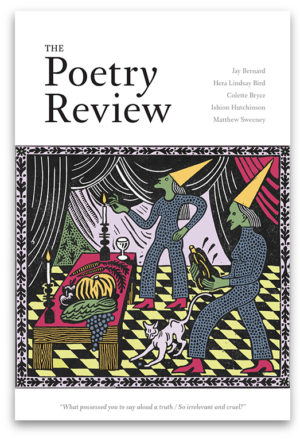
On a normal evening in January, a year and a half ago, I lay beside my mother on her bed. Although the television was on across the room, probably tuned to the news, we were on YouTube watching music videos by a singer named Anbuley. Anbuley, a stunning, lithe-limbed Ghanaian singer, has hair long enough for her to look like an African rendering of Eve. But this was not the reason for our watching. Rather, I had brought her to my mother for translation. She sings each of her songs in vibrant, forceful Ga, the language of my parents. Even now, she is the only contemporary artist I know of who does this and, since I don’t understand a word, my mother began to interpret for me.
My inability to speak or comprehend Ga is both surprising and unremarkable. Surprising, because my parents share this ethnic group, and have spoken the language to each other all my life. Surprising, also, because while I don’t understand it at all, I know its signature intimately. I’ve overheard it spoken between strangers on the street and guessed – with their confirmation – that what they were speaking was Ga. What, then, could be unremarkable about this? Nothing other than the fact that it is a very common experience. Wade Davis, Canadian anthropologist and writer, uses a daunting comparison to make this clear. “No biologist,” he warns in his essay collection The Wayfinders (2009), “would suggest that 50 percent of all species are moribund. Yet this, the most apocalyptic scenario in the realm of biological diversity, scarcely approaches what we know to be the most optimistic scenario in the realm of cultural diversity.” Davis goes on to summarise in more frank terms: “Of the 7,000 languages spoken today, fully half are not being taught to children. Effectively, unless something changes, they will disappear within our lifetimes.”
When I let these words sink in, I hear a forest full of birds. An orchestra of seven thousand songs that combine and sometimes clash to form a living, organic, polyrhythmic heartbeat of life. For whatever reason, some of the songs rise over the others. Forget, for this moment, about history; about colonialism or conquest. These louder songs carry the overall melody – perhaps they are the strings section. Other songs, in the meantime, are audible only rarely, and mostly not at all. They are the triangle that dings subtle-bright in the background, easily missed. As time goes by, these quieter songs disappear, or join the winning tune. The overall melody becomes homogenous and weighted, too heavy for itself to carry that sense of lightness that great music can invoke. It grows boring, first, then unbearable, then oppressive. It is without joy, or surprise, and is all that can be heard.
As I lay beside my mum in conversation that evening, a thought came to me. If, as had long been happening, I could approach my mother to translate Ga songs into English for me, why, then, couldn’t I ask her to translate my own work into Ga? If, as a poet who performs regularly, I knew my own work deeply, surely the access to Ga translations would enable me to become more familiar with the language as a step towards learning it. Then, another thought, or rather, a remembering: my situation is unremarkable. I don’t have enough fingers – and possibly not even enough toes – to count the individuals I know who do not speak the language of their parents. Knowing that a number of them are poets too, it occurred to me to think bigger about this small idea. Even where the language had survived the generational distance, was there not still something of value in the act of sharing and translation alone? That night, back in my own room, I scribbled everything down in a new notebook. I named each of my motivations and fears, then noted the names of the poets I had in mind. I wrote continuously for about five pages, and headed it all with the title MOTHER TONGUES.
A year and a half on, at the time of my writing this, MOTHER TONGUES is an intergenerational poetry, translation, and film project that sees four celebrated young, female poets in collaboration with their mother-figures. Each poet invites her mother to translate a poem into her native language. Later, the poet and mother visit a studio where the mother is filmed reciting her translation, followed by the poet reciting the original. A conversation is then captured between the two, prompted by questions (from myself) that aren’t heard in the final cut. Each ten-minute film features one poet-daughter and her mother, the poets being Belinda Zhawi, Theresa Lola, Tania Nwachukwu, and myself. The films debuted at Rivington Place Gallery in Shoreditch, London on Wednesday 26 July; tickets sold out within 48 hours.
(…)

